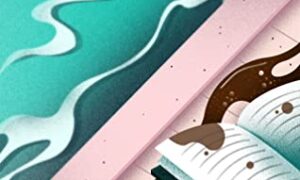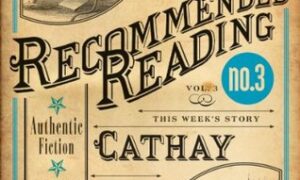 Loss by Jackie Morse Kessler
Loss by Jackie Morse Kessler
My rating: 3/5 cats



if you have been reading all of my reviews to this point, (and if you haven’t, WHY HAVEN”T YOU???) you know that i am not in love with this series in execution, but i applaud its attempts. so why do i keep reading it? part of it is my need for completion, part of it is that they are quick to read and part of it is that i keep hoping it will all come together to impress me with something i haven’t seen before, and everything will fall into place making any reservations i had vanish with a snap of, “ohhhh, so that’s why…”
this one was the weakest of the three, unfortunately. quick recap of the premise for those of you who have not been hanging on my every word on the internet: the four horsemen of the apocalypse are real, they are positions held by humans, and their goal is not necessarily to bring about the apocalypse, but to maintain balance and sort of forestall it. and so humans are chosen to fill these roles and deal with the ills of the world. and by humans, i mean sad and damaged teenagers. i personally wouldn’t have chosen teenagers for these roles—they are so overwrought already, and it is terrifying to think that the fate of the world is in the hands of such emotionally unstable individuals, but there it is. also, kurt cobain is Death. i know.
so, in Hunger, the first book, an anorexic girl is chosen for the role of famine. cute, right? in the second,Rage, a cutter is chosen for the role of war. in this one, a bullied boy is chosen for pestilence.
already, it is flawed. i’m not sure who would have been a better choice, but with the others, at least there was a poetry to their selection—the characters were put into a position where they had to examine their own self-harming choices in a larger-world context, but in this one, billy’s bullying isn’t a choice he is making, his only choice is his reaction to it, which is to just keep his head down and endure it instead of standing up for himself. and how is disease going to make him change that? it’s not. all it does is give him a little bit of power which, like the girls in the previous books, he uses initially for small-scale revenge. he becomes the bully because he can make people poop themselves and contract fevers. this is why it is not cool for kids to be given powers that can harm people—no impulse control.
but, and that would be fine, only then kessler gets weirdly ambitious. and she constructs this entire secondary fantasy plot that brings in the mythologies of king midas and robin hood and the whole thing turns into a bloated mess that takes the focus away from our bullied kid and doesn’t really add a whole lot to the larger structure. it muddies the water in what is already a muddy premise. i was hoping, by this point in the series, to have a clearer idea about why this is happening. and how these chosen individuals were able to maintain their lives and still save the world. i need logistics. don’t just tell me “time is different” because the difficulty isn’t just with time, and you know it. i need to start seeing the larger picture myself, and all this book did was to indulge in some sort of “well, the author must have always wanted to write a hallucination-rich robin hood fantasy novel, so she threw it in” situation. impulse control, indeed.
it just needs to be tighter. the bullying is fine, even if it doesn’t fit pestilence in the same way that the previous two fit their roles. the grandfather-suffering-from-alzheimer’s complicates his situation and adds a nice additional layer to billy’s character, but the rest of it just takes the emotional focus away from billy and doesn’t feel like it fits with the two previous books.
i have always felt that the first two books had the potential to really help people suffering from similar problems. that, while they might not be the best books ever written, they did have a good message, and they were sensitive without being at all treacly. i admired that, and appreciated that for some people, these books could be encouraging in dark times and help to examine their choices. this one doesn’t address bullying in the same way, and doesn’t really offer solutions or alternatives to what is still a huge problem in high schools. its message gets lost in its experimentation.
i figure the next book will be the final one, and i hope that she can end it in a way that sheds light over the entire series. i hope, to co-opt the anti-bullying motto, “it gets better.”
read my book reviews on goodreads







